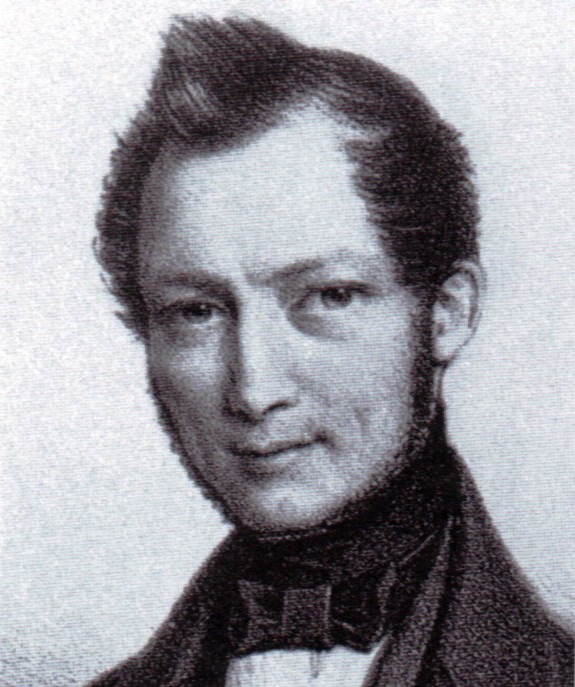Adolph Friedrich Johann Riedel on:
[Wikipedia]
[Google]
[Amazon]
 Adolph Friedrich Johann Riedel (1809 Biendorf – 1872,
Adolph Friedrich Johann Riedel (1809 Biendorf – 1872,
 Adolph Friedrich Johann Riedel (1809 Biendorf – 1872,
Adolph Friedrich Johann Riedel (1809 Biendorf – 1872, Berlin
Berlin ( , ) is the capital and largest city of Germany by both area and population. Its 3.7 million inhabitants make it the European Union's most populous city, according to population within city limits. One of Germany's sixteen constitue ...
) was a German
German(s) may refer to:
* Germany (of or related to)
**Germania (historical use)
* Germans, citizens of Germany, people of German ancestry, or native speakers of the German language
** For citizens of Germany, see also German nationality law
**Ger ...
(Prussia
Prussia, , Old Prussian: ''Prūsa'' or ''Prūsija'' was a German state on the southeast coast of the Baltic Sea. It formed the German Empire under Prussian rule when it united the German states in 1871. It was ''de facto'' dissolved by an em ...
n) antiquarian, industrialist and politician, author of ''Codex diplomaticus Brandenburgensis'', a collection of primary documents on the history of the Margraviate of Brandenburg
The Margraviate of Brandenburg (german: link=no, Markgrafschaft Brandenburg) was a major principality of the Holy Roman Empire from 1157 to 1806 that played a pivotal role in the history of Germany and Central Europe.
Brandenburg developed out o ...
, in 36 volumes.
Riedel studied theology and philology at the University of Berlin
Humboldt-Universität zu Berlin (german: Humboldt-Universität zu Berlin, abbreviated HU Berlin) is a German public research university in the central borough of Mitte in Berlin. It was established by Frederick William III on the initiative o ...
, where he served as assistant professor from 1832. He was naturalized as a Prussian citizen in 1833 and was employed in the state archive. He was promoted to ''Hofrat
''Geheimrat'' was the title of the highest advising officials at the Imperial, royal or princely courts of the Holy Roman Empire, who jointly formed the ''Geheimer Rat'' reporting to the ruler. The term remained in use during subsequent monarchic r ...
'' in 1836 and to '' Geheimer Archivrat'' in 1842, from which time he was also professor for political science at Berlin University. In 1837, he co-founded the Historical Society of Brandenburg (''Vereins für Geschichte der Mark Brandenburg''). In 1851 he was admitted as a member of the Prussian Academy of Sciences
The Royal Prussian Academy of Sciences (german: Königlich-Preußische Akademie der Wissenschaften) was an academy established in Berlin, Germany on 11 July 1700, four years after the Prussian Academy of Arts, or "Arts Academy," to which "Berlin ...
, and from 1868 he was official historiographer for Brandenburg.
He was also member of the directorate of the Berlin–Wrocław and Berlin-Anhalt railway companies, and member of the directorate of the Sugar beet
A sugar beet is a plant whose root contains a high concentration of sucrose and which is grown commercially for sugar production. In plant breeding, it is known as the Altissima cultivar group of the common beet (''Beta vulgaris''). Together wi ...
industry. In 1848, he was a member of the Prussian National Assembly
The Prussian National Assembly (German: ''Preußische Nationalversammlung''), came into being after the revolution of 1848 and was tasked with drawing up a constitution for Prussia. It first met in the building of the ''Sing-Akademie zu Berlin' ...
for Niederbarnim
Barnim () is a district in Brandenburg, Germany. It is bounded by (from the east and clockwise) Poland, the district of Märkisch-Oderland, the city state of Berlin and the districts of Oberhavel and Uckermark.
History
The name "Barnim" emerge ...
, and in 1850 member of the Erfurt
Erfurt () is the capital and largest city in the Central German state of Thuringia. It is located in the wide valley of the Gera river (progression: ), in the southern part of the Thuringian Basin, north of the Thuringian Forest. It sits i ...
parliament,
and between 1849 and 1855 and again between 1859 and 1861 member of the Prussian House of Representatives
The Prussian House of Representatives (german: Preußisches Abgeordnetenhaus) was the lower chamber of the Landtag of Prussia (german: Preußischer Landtag), the parliament of Prussia from 1850 to 1918. Together with the upper house, the House of ...
, first for the right-wing faction of Graf von Arnim-Boitzenburg, later for the left-wing faction of Karl Freiherr von Vincke.
References
* German antiquarians Prussian politicians Members of the Prussian House of Representatives 1809 births 1872 deaths Members of the Prussian National Assembly {{Germany-politician-stub